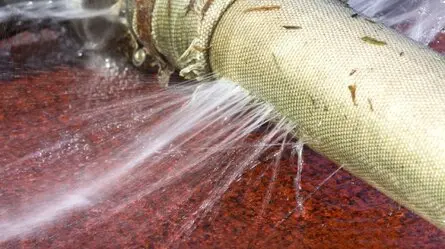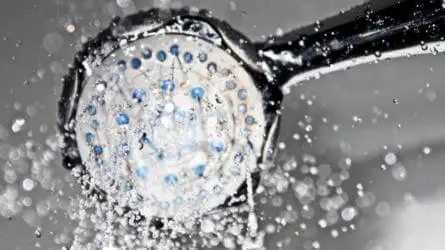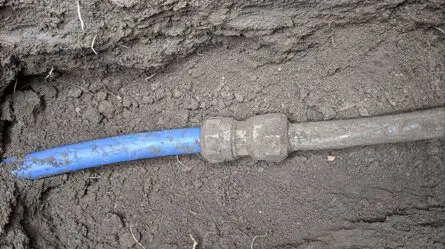Finding a plumbing leak at home can definitely stress you out. It not only causes damage but also raises questions about your insurance coverage. In this blog post, we dive into home insurance and plumbing leaks, offering insights to help you grasp your policy and what it covers.
Grasping how home insurance covers plumbing leaks is crucial for homeowners. We’ll look into key factors affecting coverage such as policy type and the nature of the leak. Plus, we’ll stress why taking preventative steps and doing regular maintenance can help dodge risks and possible insurance headaches.
Whether you’re a seasoned homeowner or a first-time buyer, this blog post is a valuable resource to help you navigate the question: does home insurance cover plumbing leaks? By the end, you’ll have a clearer understanding of what to expect, how to file a claim, and how to ensure adequate coverage for your home’s protection and peace of mind.
Understanding Homeowners Insurance Coverage For Plumbing Leaks
Does home insurance cover water leaks? Understanding homeowners insurance coverage for plumbing leaks is essential for homeowners to ensure they have the necessary protection. When it comes to sudden and accidental damage or leaks, most homeowners insurance policies provide coverage.
This includes incidents like a leaking or burst pipe, faulty plumbing fixtures, or unintentional water damage caused by a plumbing issue. In such cases, the policy may cover the cost of repairs, including fixing the plumbing problem and addressing any resulting property damage.

Some home insurance policies cover accidental damage to plumbing fixtures, like a toilet or sink. For instance, if a heavy object accidentally damages a fixture, your policy could assist with repair or replacement costs. Homeowners’ insurance does not cover plumbing issues.
Additionally, homeowners insurance often includes coverage for water damage resulting from a water leak, such as damage to walls, leaking shower floors, ceilings, and personal belongings. However, it’s crucial to carefully review the policy as limitations and exclusions may apply, especially for gradual or ongoing leaking pipes that may not be covered. Look at your policy’s Product Disclosure Statement (PDS) to understand its terms and conditions. Knowing your policy’s specifics can help you make informed decisions and take appropriate measures to protect your home against plumbing-related risks.
Filing An Insurance Claim For A Plumbing Leak
Dealing with a plumbing leak in your home can be a stressful experience. Not only do you have to address the immediate issue and potential property damage, but you also need to consider the financial implications. In many cases, homeowners insurance can provide coverage for plumbing leaks, helping to alleviate some of the burden. Here’s a brief guide on how to file common home insurance claims for a plumbing leak:

Assess the damage
Assessing the extent of the damage caused by the plumbing leak is crucial before filing a claim. Take photos or videos of the affected areas to provide visual evidence for your claim. Documenting any temporary repairs or actions to mitigate further damage is also essential.
Review your insurance policy
Carefully review your homeowners’ insurance policy to understand the coverage for plumbing-related incidents. Look for terms like "water damage" or "plumbing leaks" to determine your eligibility for coverage. Pay attention to any deductibles, limits, or exclusions that might apply.
Notify your insurance company
Contact your home insurance company as soon as possible to report the plumbing leak and initiate the claims process. Provide them with accurate and detailed information about the incident, including the leak’s date, time, and cause. Be prepared to share the documentation and evidence you gathered during the assessment.
Cooperate with the claims adjuster
Expect your insurance company to send a claims adjuster to check out the damage and see if your claim holds up. Be helpful during their visit, allowing access to damaged areas and answering their questions. Their evaluation will be key in deciding your claim’s fate.
Keep records and receipts
Throughout the claims process, keep a record of all communication with your insurance company, including names, dates, and summaries of conversations. Additionally, keep track of expenses incurred from the plumbing leak, such as repair bills, replacement costs, or temporary accommodations. These records will help substantiate your claim and ensure fair compensation.
Follow instructions and timelines
Your insurance company will provide instructions and timelines for completing the claims process. Adhere to them diligently, promptly providing any requested documentation or information. Failure to comply with these requirements may delay or even jeopardise your claim.
Understand the settlement
If your claim is approved, your insurance company will provide a settlement offer based on the terms of your policy. Carefully review the offer to ensure it adequately covers the damages incurred. If you have any concerns or questions, don’t hesitate to discuss them with your insurance representative.
Tips to Prevent Plumbing Leaks And Water Damage
Water damage caused by plumbing leaks can lead to costly repairs, structural damage, and inconvenience. Fortunately, you can take several proactive steps to prevent plumbing leaks and minimise the risk of water damage in your home. Here are some valuable tips to help you safeguard your property:

Regularly inspect plumbing fixtures
Most insurance policies don’t cover gradual damage from a slow leak due to wear and tear. Regularly inspecting your plumbing and prompt repairs can help prevent slow damage that insurance might not cover.
Regularly inspect your plumbing fixtures, including faucets, toilets, and showerheads. Look for any signs of leakage, such as dripping or pooling water. Addressing minor water leaks promptly can prevent them from escalating into major issues.
Maintain proper water pressure
Excess water under or around the hot water system (storage hot water systems often release some water through the pressure relief valve as part of regular day-to-day operation). Also, roof-mounted solar hot water and pool heating systems should be checked.
Excessively high water pressure can strain your plumbing system and increase the likelihood of water leaks. Consider installing a pressure regulator to keep water pressure within the recommended range, typically between 30 to 80 psi (pounds per square inch).
Insulate exposed pipes
Insulate pipes in your home’s colder areas, such as basements, attics, and crawl spaces. Insulation helps prevent pipes from freezing and potentially bursting during colder months, reducing the risk of leaks and water damage.
Practice drain maintenance
Clean and maintain your drains regularly to prevent clogs and blockages. Use drain screens or catchers to prevent debris, hair, and other substances from entering the drain and causing backups. Avoid pouring grease, oil, or harsh chemicals down the drain.
Be mindful of what you flush
Toilets can be susceptible to clogs and leaks if improper items are flushed down. Educate your household about what can and cannot be flushed. Only flush toilet paper and human waste, avoiding sanitary products, wipes, or cotton balls, which can cause blockages.
Check washing machine hoses
Inspect the hoses connected to your washing machine regularly. Look for any signs of wear, cracks, or bulges. Replace old or damaged hoses with high-quality, stainless steel braided hoses, which are more resistant to leaks and can provide added durability.
Schedule professional inspections.
Consider having a professional plumber conduct periodic inspections of your plumbing system. They can identify potential issues, such as corroded pipes or worn-out seals before they lead to leaks or water damage.
Know the location of shut-off valves
Familiarise yourself with the location of your home’s main water shut-off valve. You can quickly turn off the water supply to minimise damage in a plumbing emergency or leak. Additionally, ensure that all family members know how to shut off the water if needed.
Install leak detection devices.
Consider installing detection devices that alert you to leaks and water damage.
Act quickly on small leaks.
Please pay attention to small leaks; address them promptly to prevent them from escalating into more significant issues.
Know What To Do When A Plumbing Disaster Strikes!
Knowing what coverage your insurance policy offers for plumbing leaks is vital for safeguarding your home and finances. Getting to grips with your policy’s terms means you can handle unexpected plumbing issues more effectively and manage the claims process smoothly.
Remember, prevention is critical. Regular maintenance and proactive measures can help mitigate the risk of plumbing leaks and potential insurance complications. By taking care of your plumbing system and promptly addressing any issues, you can avoid costly repairs and maintain a positive relationship with your insurance provider.
Need some professional plumbing help or have questions about leaks and insurance? Reach out to Woolf Plumbing without delay. Our seasoned team is here to offer you dependable solutions and advice. Get in touch today to keep your home safe and your mind at ease.




